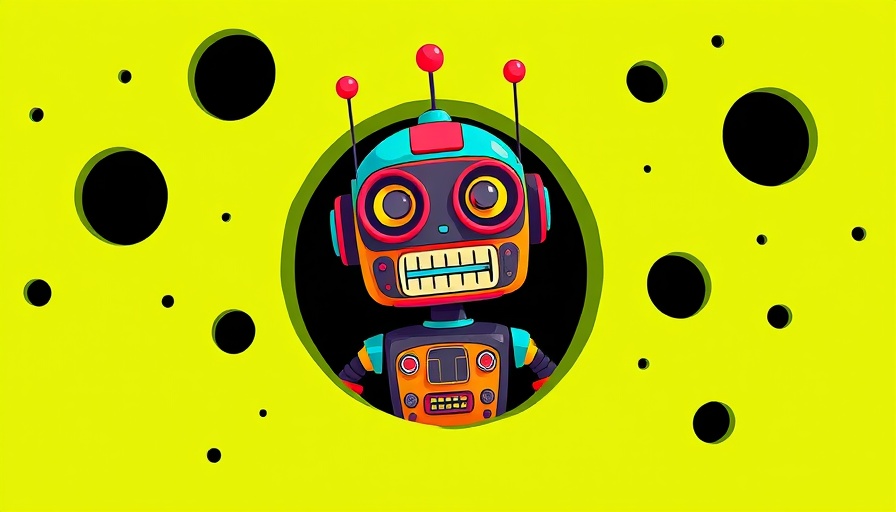
Embracing the Unknown: The Next AI Revolution
As the AI landscape heats up, the question looms: who will emerge victorious in the AI race? With tech giants like OpenAI and Google steering the way, it is easy to assume that the next groundbreaking AI innovation is already within their grasp. However, as history has shown us, the ultimate victor is often a company that has yet to be conceived. The browser wars of the 1990s serve as a reminder of this reality, where companies like Netscape and Google were once unimagined.
Lessons from the Browser Wars
The browser wars, ignited in the mid-1990s, showcased a fierce battle between Netscape and Microsoft for dominance over web browsers. At the time, nobody could predict that a little startup named Google would revolutionize the internet scene just a few years later. Today, we're witnessing a similar phenomenon in the AI sector. The rapid emergence of startups, vying for a spot in this lucrative market, echoes the uncertainty that preceded Google's rise.
The Foreshadowing of AI Startups
Despite the prominence of established players, there is a strong surge of venture capital investing in emerging startups seeking to develop the next cutting-edge AI technology. Companies like Mira Murati's Thinking Machines Lab and Ilya Sutskever's Safe Superintelligence are gaining attention, pushing the boundaries of AI innovation. Even within a crowded market, newcomers may hold the key to the AI future.
The Bubble of Promises and Perils
It's crucial to recognize the skepticism surrounding current AI investments. The marketplace might appear saturated, leading some critics to suggest that we may be on the brink of an AI bubble. Many startups are likely to fail, yet the allure of a few hitting the jackpot with a groundbreaking product keeps investors invigorated. As seen with OpenAI's ChatGPT and other leading AIs, potential for explosive growth remains, even amidst the turbulence.
Predictions for Tomorrow's AI Champions
The trajectory of AI remains unpredictable. The eventual victor could well be an established powerhouse like OpenAI, or it could be an obscure startup that hasn't yet been founded. The rapid technological advancements in AI open numerous doors, but they also result in an unpredictable landscape ripe for advantage-taking. Forecasting the leading technology could unveil surprising prospects, or the very giants of today may absorb the next wave of innovations.
An Inspirational Future Awaits
Understanding the dynamic context of AI reminds us that innovation is not always fostered within the walls of established companies. The tech giants may be cognizant of the potential for disruption and competition that looms around the corner, which is why a significant investment in startups is crucial. As the AI world evolves, staying abreast of landmark shifts will be essential, whether you're an investor, developer, or merely an enthusiast.
Conclusion: The Race is On!
The race for AI supremacy is far from its finish line. Investors are betting on potential groundbreakers, acknowledging the distinct possibility that the future leader might not exist just yet. As we continue to witness an explosion of creativity and ambition in the AI space, there’s no telling what remarkable innovations lie ahead. So buckle up and keep your eyes on the road; the future of AI is just getting started!
 Add Row
Add Row  Add
Add 




Write A Comment